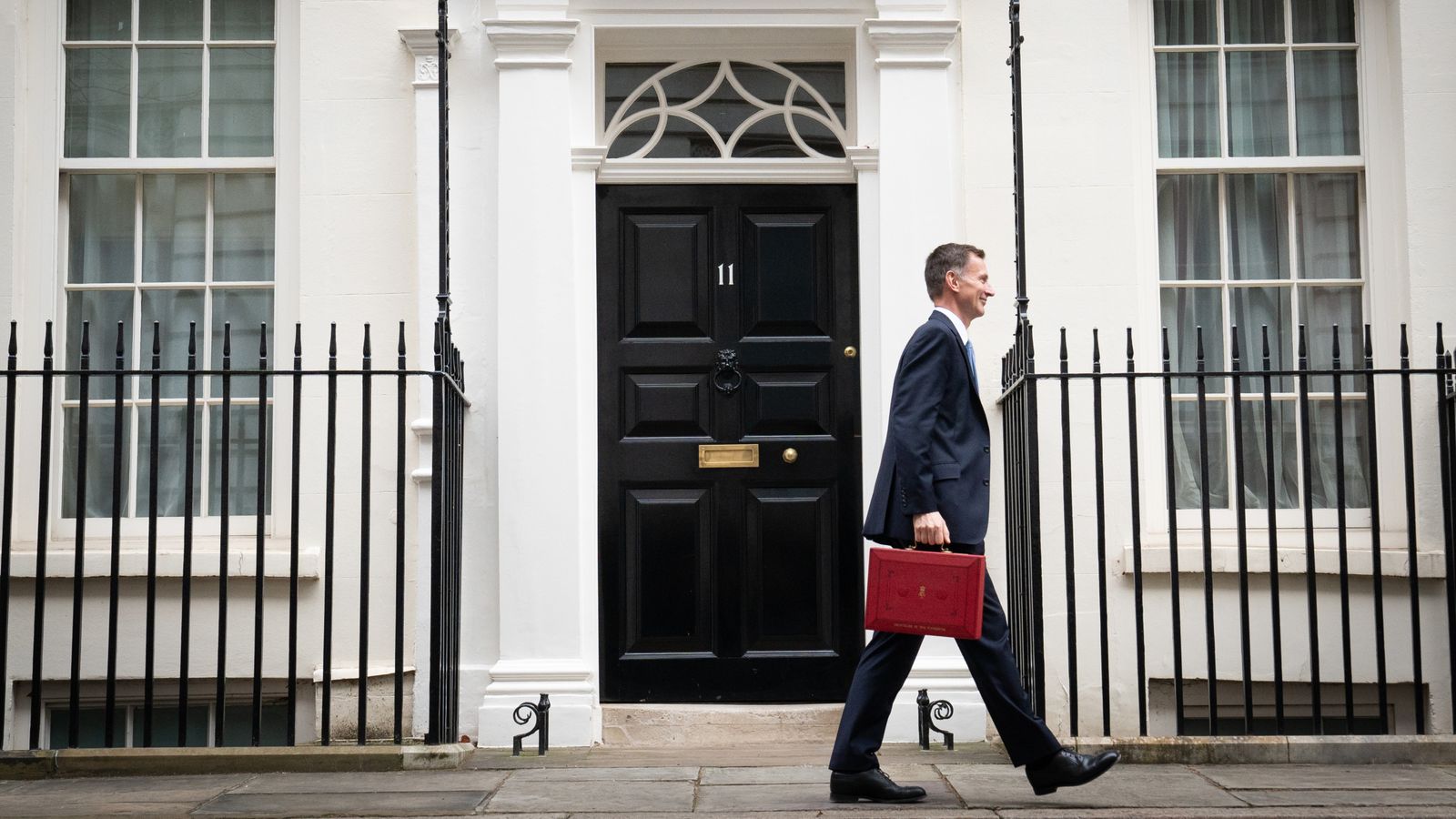Chancellor Jeremy Hunt is preparing to deliver his autumn statement as rumours swirl about what it might contain.
The chancellor will give an update on the state of the economy and may also announce tax and spending changes.
Here’s all you need to know about when it will be and what it could say.
When is the autumn statement?
The autumn statement will take place on 22 November 2023.
What time is the announcement?
The announcement usually starts at 12.30pm – directly after Prime Minister’s Questions – and lasts about an hour.
After the statement, shadow chancellor Rachel Reeves responds, and then other MPs ask questions about the statement.
Before the announcement, the chancellor poses for the press with the red despatch box containing the budget papers.
After the speech, the Office for Budget Responsibility (OBR) will publish a report outlining how the economy is doing and its forecasts.
What happens after the statement?
It depends on what is in the statement. If the chancellor announces changes to taxes, then legislation may need to be brought in.
This happened last year. The Finance Bill 2022 was brought in after Mr Hunt’s first autumn statement as chancellor, which included a £55bn package of tax rises and spending cuts to put the UK “on a balanced path to stability” after Kwasi Kwarteng’s disastrous mini-budget.
It may be that no big changes are announced that will come into force before the next budget – in which case, nothing more will happen.
What could be in the autumn statement?
The focus will be on helping struggling families with the cost of living and boosting growth.
Mr Hunt has said “everything is on the table” when it comes to tax cuts, and has not ruled out rumours about a reduction in inheritance tax and changes to taxes on personal income.
Speaking to Sky News’ Sunday Morning with Trevor Phillips, Mr Hunt said his speech would focus on growth, and pledged to “remove the barriers that stop businesses growing”.
Changes to inheritance tax are being considered – including reducing the tax rate from 40% to 20% on estates above £325,000. If the tax rate isn’t cut in half, there have also been suggestions it could be lowered by 30% or 20%, according to The Times.
But any changes to inheritance tax wouldn’t affect the majority of the population – only 4% of estates paid inheritance tax in 2021.
The government could also cancel a planned increase on stamp duty.
The chancellor is also expected to cancel the planned 5p increase in fuel duty from April next year.
Mr Hunt has signalled there could be a squeeze on benefits to find savings for tax cuts.
Typically, the increase to benefits is based on the September figure for inflation – so a 6.7% hike.
But the chancellor has not ruled out using October’s figure instead, which would mean a 4.6% rise.
Mr Hunt has announced plans to remove benefits and step up monitoring of welfare recipients in an effort to bring more people into work. Further rules of the Back To Work Plan will be set out in the autumn statement.
Read more:
When could the next general election be?
How a month of disunity could hit Sunak and Starmer
Click to subscribe to Politics at Jack and Sam’s wherever you get your podcasts
What’s the difference between the autumn and spring statements?
The spring budget was the main fiscal event of 2023. The budget is where the most significant tax and spending changes are usually announced.
The autumn statement is supposed to be an update – but sometimes the announcements can be just as big and important.
In 2017 the government introduced a change that was supposed to mean the budget would take place in autumn, and a spring statement would be delivered shortly before the start of the financial year on 6 April.
But since 2019 the timing has been thrown off – first by the 2019 general election and the COVID-19 pandemic, then the change in leadership in 2022.
Watch live coverage on Sky News of the autumn statement from 11am on Wednesday.







